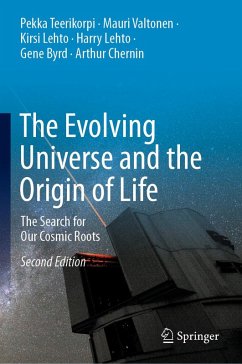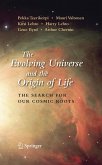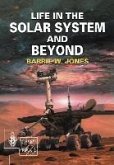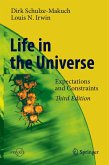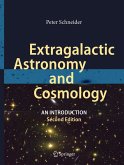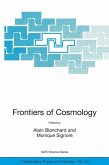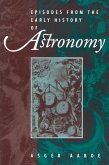Regarding his discoveries, Sir Isaac Newton famously said, "If I have seen further it is by standing upon the shoulders of giants."
The Evolving Universe and the Origin of Life describes, complete with fascinating biographical details of the thinkers involved, a history of the universe as interpreted by the expanding body of knowledge of humankind. From subatomic particles to the protein chains that form life, and expanding in scale to the entire universe, this book covers the science that explains how we came to be.
This book contains a great breadth of knowledge, from astronomy and physics to chemistry and biology. The second edition brings this story up to date, chronicling scientific achievements in recent years in such fields of research as cosmology, the large-scale architecture of the universe, black holes, exoplanets, and the search for extraterrestrial life.
With over 250 figures, this is a non-technical, easy-to-read textbook at an introductory college level that is ideal for anyone interested in science as well as its history.
The Evolving Universe and the Origin of Life describes, complete with fascinating biographical details of the thinkers involved, a history of the universe as interpreted by the expanding body of knowledge of humankind. From subatomic particles to the protein chains that form life, and expanding in scale to the entire universe, this book covers the science that explains how we came to be.
This book contains a great breadth of knowledge, from astronomy and physics to chemistry and biology. The second edition brings this story up to date, chronicling scientific achievements in recent years in such fields of research as cosmology, the large-scale architecture of the universe, black holes, exoplanets, and the search for extraterrestrial life.
With over 250 figures, this is a non-technical, easy-to-read textbook at an introductory college level that is ideal for anyone interested in science as well as its history.
Dieser Download kann aus rechtlichen Gründen nur mit Rechnungsadresse in A, B, BG, CY, CZ, D, DK, EW, E, FIN, F, GR, HR, H, IRL, I, LT, L, LR, M, NL, PL, P, R, S, SLO, SK ausgeliefert werden.
From the reviews:
"Written for anyone interested in the quest for that knowledge which has changed our way of thinking about the world, this is an excellent book. Although suitable for the general audience, the book can be used as an undergraduate text ... by those who recognize the connection between the humanities and the sciences. ... I can recommend it not only for its readability, but also for its coverage of the scientific concepts that define our way of thinking about the Universe." (Sethanne Howard, Journal of the Washington Academy of Sciences, Spring 2009)
"This excellent book by Teerikorpi ... and colleagues sets high goals for itself and satisfies them. ... The treatments of each of the topics, together with the latest information, not only inform but also give nicely thought out summaries of the evolutions of seminal scientific ideas. These include cosmology, observational astronomy, the laws of physics, and the chemistry of life. ... This volume belongs in all college libraries and on the desks of most scientists. Summing Up: Highly recommended. All levels/libraries." (K. L. Schick, Choice, Vol. 46 (10), June, 2009)
"Written for anyone interested in the quest for that knowledge which has changed our way of thinking about the world, this is an excellent book. Although suitable for the general audience, the book can be used as an undergraduate text ... by those who recognize the connection between the humanities and the sciences. ... I can recommend it not only for its readability, but also for its coverage of the scientific concepts that define our way of thinking about the Universe." (Sethanne Howard, Journal of the Washington Academy of Sciences, Spring 2009)
"This excellent book by Teerikorpi ... and colleagues sets high goals for itself and satisfies them. ... The treatments of each of the topics, together with the latest information, not only inform but also give nicely thought out summaries of the evolutions of seminal scientific ideas. These include cosmology, observational astronomy, the laws of physics, and the chemistry of life. ... This volume belongs in all college libraries and on the desks of most scientists. Summing Up: Highly recommended. All levels/libraries." (K. L. Schick, Choice, Vol. 46 (10), June, 2009)

